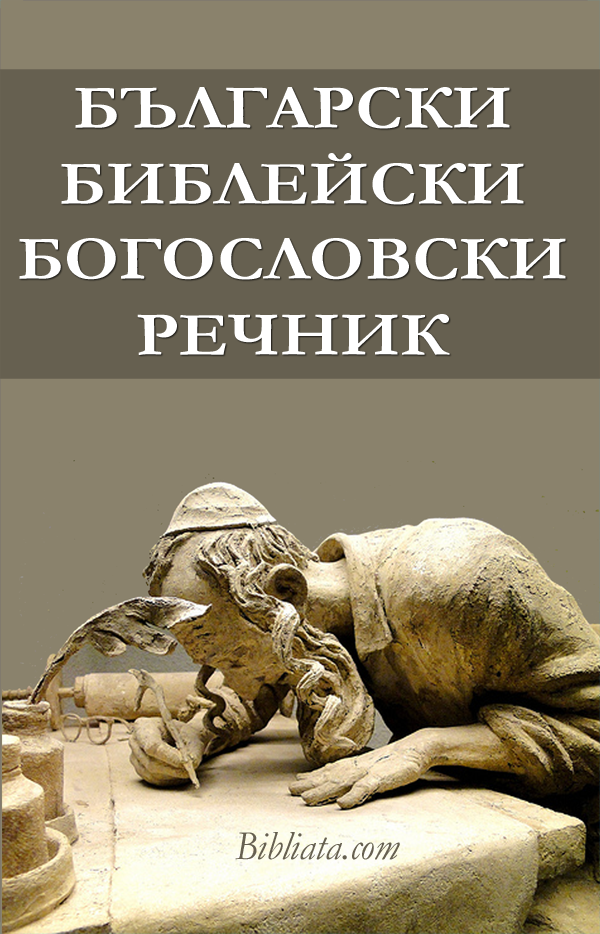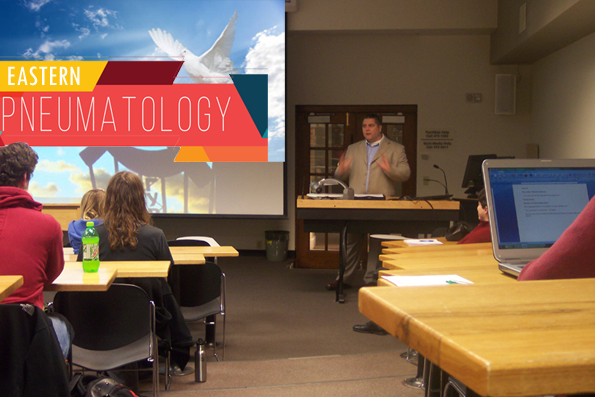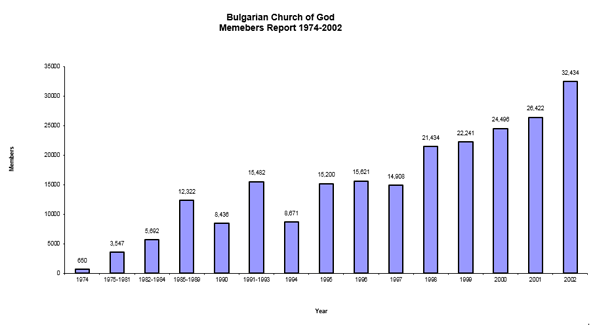Our Bulgarian Chaplaincy Association celebrates 25 years of Military Ministry in Bulgaria
 Our Bulgarian Chaplaincy Association celebrates 25 years of Military Ministry in Bulgaria since the first event co-hosted by the Bulgarian Armed Forces and government officials in 1997.
Our Bulgarian Chaplaincy Association celebrates 25 years of Military Ministry in Bulgaria since the first event co-hosted by the Bulgarian Armed Forces and government officials in 1997.
2018 The Road toward a Balkan Multi-Ministry Center and Legal Status
2017 Bulgarian Chaplaincy Association: Legal Case Renewed
2015 Revisting the Integration Proposal with Local NATO Programs by Bulgarian Chaplaincy Association
2014 Bulgarian Chaplaincy Association: Vision and Resolution Reaffirmed
2012 First Class of the Master’s of Chaplaincy Ministry Program
2011 Master’s of Chaplaincy Ministry Program Continues
2010 Master’s of Chaplaincy Ministry Program begins in Sofia, Bulgaria
2009 Bulgarian Chaplaincy Association holds an introductory chaplaincy course in Yambol, Bulgaria
2008 The Case of a NATO Chaplaincy Model within the Bulgarian Army released
2007 Bulgarian Chaplaincy Associations Recognized by U.S. Department of State
2006 Registration for the Bulgarian Chaplaincy Association Rejected by Bulgarian Court
2005 The Bulgarian Chaplaincy Association presented before the Bulgarian Evangelical Alliance
2004 Three U.S. Bases in Bulgaria to be Built by 2010
2003 The Case of a NATO Chaplaincy Model within the Bulgarian Army
2002 First Balkan Chaplaincy Conference at the Central Church of God in Sofia, Bulgaria
2001 Church of God Chaplaincy Commission to visit Bulgaria
2000 Euro-seminar: Christian ethics in the military forces
1997 First Military Ministry Seminar in Veliko Tarnovo
With all this accomplished, in the beginning of the 21st century law and chaplaincy meet on the road to democracy as Bulgaria remains the only country in NATO without military force chaplaincy. But before chaplaincy could be legalized completely and endorsed by the state to its full functionality, several changes must be undergone. Some of them are:
- Legal provision allowing chaplains to work as staff in the army, which guarantees the equal presence of protestant chaplains as well.
- The approval, acceptance and implementation of a NATO based model for chaplaincy within the structures of the Bulgarian Army.
- Periodical and systematic educational strategy toward chaplaincy workers among Bulgarian evangelicals.
- A paradigm for cooperation of Bulgarian chaplains from various ethnic, religious and cultural backgrounds.
- Further research publications to enhance the efficiency of chaplaincy within the Bulgarian national context.
Also important [click to read]:
- U.S. Department of State recognizes our chaplaincy efforts in Bulgaria
- Bulgarian Chaplaincy Association: Integration Proposal with Local NATO Programs
- Bulgarian Chaplaincy Association: Vision and Resolution
- Chronology of our role and involvement in developing Church of God chaplaincy in Bulgaria since 2001
- Master’s of Chaplaincy Ministry Program in Bulgaria Reflections
- The Past Decade of Chaplaincy in Bulgaria (2006-2016)
- Related Publications and Presentations by Cup & Cross Ministries International
More Publications on the Topic and History of Events:
- Chaplaincy Conference and Master’s of Chaplaincy
- Chaplaincy Course in Yambol, BULGARIA
- Bulgarian Chaplaincy Association Annual Meeting
- Family Seminar for Military Men and Women
- Cup & Cross Ministries in Church of God Publications
- The Case of a NATO Chaplaincy Model within the Bulgarian Army
- 10 Years of Military Ministry in Bulgaria
- National Chaplaincy Conference
- Bulgarian Chaplaincy Association Gains Legal Status
- Chaplain Dees Visits Bulgaria
- Chaplaincy Course at the Bulgarian Evangelical Theological Institute
- Bulgarian Chaplaincy Association
- Meeting the NATO Chaplain
- National Chaplaincy Meeting
- Chaplaincy Developments in Bulgaria
- U.S. Bases in Bulgaria
- National Chaplaincy Meeting
- Chaplaincy in Bulgaria
- HEALTHCARE CHAPLAINCY IN BULGARIA
- Chaplaincy in Bulgaria
- Mission Bulgaria
A Practical Superfood Survival Guide of Wellness Recipes
ORDER at: https://www.amazon.com/Practical-Superfood-Survival-Wellness-Recipes/dp/B0B1ZPB339/
NEW Bulgarian Bible Theological Dictionary

The Orthodox Church before AD 1054

Dony K. Donev, D.Min.: Eastern Pneumotology Lectures
Eastern Orthodoxy can be expressed in one word: theism. The purpose and meaning of life is to become more like God. Deification is pursued by all means of human existence. This quest for divine likeness often includes the typical for the Eastern Church, speculation on the divinity and humanity of Christ, traditions on the doctrine of the Trinity and non-traditional mystical experiences. They appear in the context of both physical and spiritual characteristics in individual and corporate ecclesiastical environment. The role of the Spirit in the process of deification is threefold and involves: creation, re-creation and theism. Eastern Pneumotology follows the graduate process of theism development. The Spirit is involved in the original creation of the world as well as the new-birth experience. His work however, does not end there, but continues throughout the process of personal deification of the believer.
The Orthodox Church before AD 1054
The experiencing of the Spirit in this period is characterized with the existence of spiritual gifts, the quest for spiritual knowledge and an experiencing of the kingdom of God. Beside attempts to explain the nature and existence of the Trinity, the ecclesiastical writings contain passages on sin and prayer (John Cassian), creation and re-creation (Maximus the Confessor). The main focus in this context remains on the mystical experiencing of the Spirit. A motto statement of this era is the expression of Pseudo-Dionysius the Areopagate that “God can be approached experientially beyond the bounds of sense perception and reason.”[1]
From a similar perspective John Cassian believed that spiritual knowledge comes only through the presence of the Holy Spirit.[2] It is a result of one’s inflammation with the desire to possess the wisdom of God. This search for spiritual knowledge is accompanied by a personal quest for ethical and practical knowledge. The process contains one’s deliverance from the evil of the world and humility of heart as the fruit of the Spirit.[3]
The fruit of the Spirit is the context in which the gifts of the Spirit operate. They are not a product of one’s efforts, but rather acts of God’s grace. Cassian divides the list of existing spiritual gifts in three categories: (1) gifts of healing, (2) gifts for ecclesiastical edification and (3) gifts contrived by deceiving devils.[4] The latter probably resembles a problem with false teachers and false prophets experienced within the Eastern Church of the late third and early fourth centuries.
Cassian further claims that the spiritual gifts are given for a season, after which only love continues.[5] Yet, on the other hand, he reports the experiencing and practice of spiritual gifts in his time.[6] It seems appropriate to assume that Cassian did believe in the operation of spiritual gifts not only through the apostolic time, but also in his own time. Thus, his postulation for the disappearance of the Spiritual gifts refers to a rather latter period when the church will not be present in the world any longer and spiritual gifts will not be needed in the context of the Kingdom of God. Love, however, will remain.
Another writer who focuses on the nature and the existence of the Kingdom of God is Maximus the Confessor (ca.580-662). Maximus was born and lived in the aristocratic circles of Constantinople, the capital of the Byzantine Empire. He was exiled in Thrace for opposing the heresies of monotheletism and monoenergism.[7]
In the pneumotological context of his claims, he assumed that the kingdom of God is the Holy Spirit. He proves the former by an interesting analogy between the kingdom, where God dwells, and the temple of the Spirit, which are the Christians. The spiritual temple is consisted only of the believers who have rejected evil and thus have accepted the fruit and the gifts of the Spirit.[8] Since they have the kingdom of God inside of them, Maximus concludes that the Spirit and the Kingdom are identical equivalents.
The Kingdom of God, according to Maximus, is realized only in a state of continues prayer. It is only then, that the mind departs from all human knowledge and worldly ideas. Separated from all human perceptions, one receives understanding of God, but “only without the human senses.”[9] This state is an ecstasy in which one abides in God in a complete, but rather momentary deification.[10] The eternal deification is preserved for the ones who maintain a righteous life, and is reached only in the eternal union with the Trinity.[11]
The process and act of deification is described as the Baptism of the Holy Spirit by another systematic writer of this early period, by the name of Symeon the New Theologian. Burgess describes Symeon as the most mystical writer in description of his personal pneumatic experience.[12] The New Theologian, claims that baptism of the Spirit opens the door for a continuous theosis. Thus, deification is impossible apart from the spiritual baptism.[13] Denial of the fact that the Spirit baptism and deification cannot be experienced today is blasphemy or unforgivable sin.[14] In this context, one can be neither saved, nor deified without the baptism of the Spirit.
Furthermore, the baptism of the Spirit is received only after extensive process of preparation and purification, which comes close to our modern-day, Pentecostal understanding of sanctification. During this process, one grows in meekness and humility, being aware of his/her sins.[15] The final stage involves purification with many tears, without which no one can receive the Holy Spirit.[16] Symeon understands the above process of the baptism with the Holy Spirit as a return to a radical living of the Gospel in analogue to the primitivism of the first century Church.[17]
[1] Burgess, 38.
[2] Conf. 14.16, NPF 2nd Series 11:444.
[3] Colm Luibhead, John Cassian: Confences, CWS (New York: Paulist Press, 1985), 14.10, NPF 2nd Series 11:440.
[4] Conf. 15.1, NPF 2nd Series 11:445-46.
[5] Conf. 1.11, NPF 2nd Series 11:299-300.
[6] Conf. 15.4-5, NPF 2nd Series 11:447.
[7] Burgess, 40.
[8] Ibid., 44.
[9] Ambigua 10, PG 90:col. 1113.
[10] Ambigua 7, PG 90:col. 1076.
[11] Ambigua 10, PG 90:col. 1196.
[12] Burgess, 38.
[13] Ibid., 61.
[14] Disc. 33.3-5, 341-43.
[15] TGP 3.23, 87.
[16] Disc. 3329.5, 313.
[17] Burgess, 62.
When there’s a failure to communicate
When leaders are constantly flummoxed by those who don’t seem to get it, there exists both a leadership and communications problem. Show me a leader with poor communication skills and I’ll show you someone who will be short-lived in their position. Great leaders can communicate effectively across mediums, constituencies, and environments. They are active listeners, fluid thinkers, and know when to dial it up, down, or off.
Bulgarian Church of God Membership 20 Years Later

Sequence of Internal Motivation
by Kathryn N. Donev, LPC/MSHP, NCC
The following are some highlights to encourage you this new year in midst of the uncertainty of a global pandemic with 1) Product Placement, 2) Cognitive Dissonance, and 3) Mass Formation Psychosis surrounding us daily.
Internal motivation is produced through a five stage sequence: (1) Informed, (2) Interested, (3) Identification, (4) Internal Passion, and (5) Internal Motivation. The first stage involves the initial process of becoming aware. Awareness requires a time of enlightenment. This may take place by various means, including but not limited to learning through verbal communication or media forms including virtual resources. It is important to note that if one is not cognizant of the reasons he or she performs certain actions, there may be consequences when one discovers that manipulation rather than motivation has occurred. True motivation involves both understanding the purpose and reasoning behind actions.
The second stage involves one becoming interested. This occurs after enlightenment when one makes a choice whether or not to further invest. At this period, if there is a level of curiosity, there will be a desire to obtain more information. He or she may become personally intrigued by the obtained information and feel like such defines who he or she is. In midst of pandemic information translates to safety.
After obtaining the material necessary to understand why he or she is about to make an investment, the individual proceeds to stage three. During this step, one will begin to identify with what was just learned. You embrace the cause as part of your person. It is important to note that in order to be motivated toward a cause, you have to identify with that cause. When you identify with something, the identified aspect becomes a part of your being, resulting in a sense of belongingness.
The fourth stage, internal passion, begins with an igniting spark. This is the preliminary occurrence needed in order to instigate motivation within an individual. However, it is important that this spark does not become consuming. A balance between one’s passion or motivating force and one’s being or person needs to exist. This is crucial in preventing burnout.
Becoming internally motivated is the final stage. At this stage, one has a desire to do something just because they love it; thus achieving genuine internal motivation. This motivation is not reliant on external rewards, but originates solely from within the individual. The significance of internal motivation is that this type drives one regardless of the opinions or actions of others, free from persuasion, influence or secular reinforcements.
Nurturing Ongoing Motivation
Even though one may possess internal motivation, he or she eventually may move from being internally motivated, to externally motivated when personal drive or passion comes no longer from within, but rather from external factors such as the praise of others. When you place too much emphasis on the opinions of others, it is easy to lose sight of the origin of passion. That which originally came from within, now is being influenced by external factors. Once external factors become nonexistent, one is no longer rewarded for actions.
When one continues to move toward a goal with little or no reinforcement, a crisis may result. An individual may begin to wonder why he or she continues to engage in an act if no one seems to appreciate the effort. Therefore, in order to prevent this burning out or moving away from being internally motivated and losing one’s desire to move forward when external reinforcements are not present, it is important that one revisits his or her initial passion and move away from having to rely on external factors to influence action. This period of retaining one’s internal motivational state may involve a weaning process where people re-learn to live based on what God wants rather than on social reasoning.









